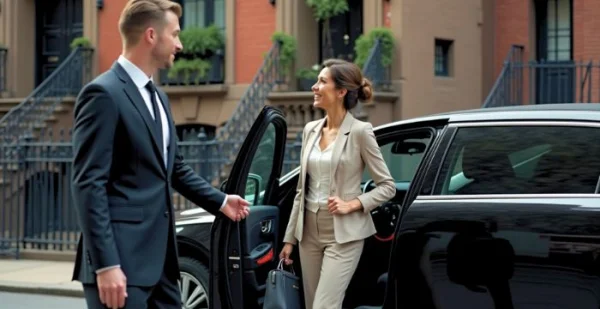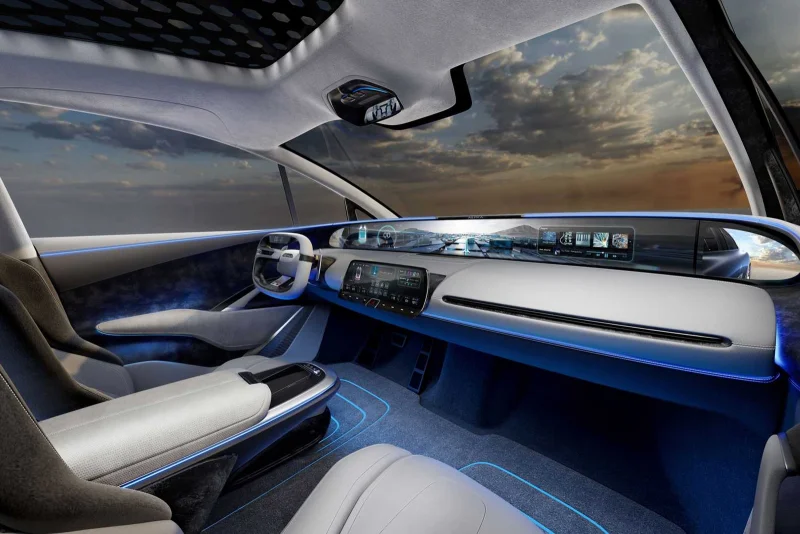How Smart Technology Is Redefining Luxury Transportation in Boston

Clients who book a chauffeured sedan or SUV expect more than a ride. They demand a serene cabin, a punctual meet-up at Boston Logan International Airport (BOS), and a receipt sent before they reach the hotel lobby. With passenger counts soaring, roadways remaining dense, and expectations rising, premium operators that seamlessly blend live flight intelligence, real-time traffic data, automated curb policy compliance, mobile checkout, and modern safety tools are pulling ahead. This data-driven approach delivers the calm and reliability that riders truly notice.
Rising Travel Demand and Road Traffic Challenges
High demand elevates the need for precise execution. Massport reported a new high-water mark at BOS, serving approximately 43 million passengers in 2024, a figure that includes a record volume of international travelers. This scale makes ground coordination and precise meet-and-greet timing mission-critical. Traffic analysis shows that Boston-area drivers are estimated to have lost roughly 79 hours in delays in 2024, time valued at about $1,414 per driver. For luxury limo transportation that competes on punctuality, the imperative for smarter, data-driven operations is clear.
Real-Time Flight Tracking With AI for Airport Transfers
Reliable handoffs start with the core aviation signals used by airlines. Services like FlightAware’s AeroAPI surface real-time status changes, gate or terminal moves, and predictive arrival times (via capabilities like Foresight). When this data streams into dispatch systems, chauffeurs and passengers receive automatic updates the moment a flight plan changes. Within the MetroWest Car Service dispatch system, similar live data integrations ensure that chauffeurs arrive precisely when passengers deplane, not a minute early or late.
This intelligence is combined with the official feed from Mass511 (cameras, incidents, and travel times) and commercial inputs like TomTom Traffic for live flow and detailed incident information. The blend of these data streams shifts operations from rigid scheduling to one based on real-time reality. The practical effect: tighter “on-location” windows, fewer missed connections, and less guesswork when a tunnel slows or a highway pulse forms.
Adapting to New Pickup and Drop-Off Policies

Curb management is shaped by both city-side pilots and on-airport rules. The transportation department has implemented dedicated pick-up/drop-off zones and geofenced them within ride-hail applications; this exact compliance must be built into a professional chauffeur app to avoid citations and keep lanes clear. At the terminals, the baseline rule is no curbside idling or parking for general pickups; professional operators must use the Cell Phone Lot (time-limited, stay-with-vehicle) or designated livery staging areas. Routing software that guides chauffeurs directly to the correct staging point is essential for seamless passenger greetings.
Policy Changes:
- A ride-app surcharge increase to $5.50 per trip (for pickups and drop-offs) will take effect on July 1, 2025.
- The planned return of shared rides (also expected in late 2025) is intended to manage terminal throughput.
These shifts increase terminal pressure and alter traveler expectations, requiring all operators, regardless of their status as Transportation Network Companies (TNCs), to adapt. Fleet categories such as Van Rental face even greater logistical challenges due to their size and passenger volume, making technology-driven curb compliance and route mapping critical for smooth operations.
Contactless Payments and PCI Standards in Car Services
Ending a journey should be swift and elegant, without the hassle of juggling bulky hardware. Tap to Pay allows chauffeurs to securely accept contactless cards and mobile wallets directly on an iPhone (without an external terminal) through supported payment providers. This technology is ideal for quick transactions at hotel forecourts, arenas, and FBOs.
Behind the scenes, PCI DSS (Payment Card Industry Data Security Standard) remains the mandatory baseline for anyone storing or transmitting card data. For platforms that vault cards for returning VIPs, operators must ensure their payment provider’s attestation and compliance scoping keep their obligations clear and audits clean.
Advanced AI Integrated Safety Systems

Corporate duty-of-care buyers prioritize safety outcomes. Research from the Insurance Institute for Highway Safety (IIHS) demonstrates the effectiveness of modern vehicle safety systems:
- Forward-Collision Warning (FCW) alone reduces police-reported rear-end crashes by about 27%.
- Automatic Emergency Braking (AEB) reduces police-reported rear-end crashes by approximately 50%.
- Rear automatic braking combined with cameras and sensors can trim backing crashes by around 78%.
These systems offer critical protection during tight curb maneuvers and airport garage navigation. Local law reinforces this safety posture: Massachusetts’ hands-free statute prohibits holding a phone while driving, with escalating fines ($100, then $250 with a course, then $500 with surcharges). For multi-passenger bookings such as charter bus service in boston, AI-enhanced driver assistance systems offer extra assurance, reducing blind-spot and rear-collision risks in high-density zones.
Electric Vehicles For a Sustainable Transportation Fleet
Fleet electrification is increasingly viable beyond pure sustainability goals. The state’s MOR-EV program offers a base rebate of $3,500 for new eligible Battery Electric Vehicles (BEVs), with additional funds available for income-qualified residents and specific vehicle classes. This support helps premium fleets justify the investment in BEV sedans and SUVs for airport runs and roadshows. On the ground at BOS, Massport provides excellent staging support with 115 landside charging ports, including 56 publicly available Level-2 ports and 12 DC fast chargers designated for ride-for-hire services. The availability of charging in the Central, Terminal B, and Economy garages, without a separate electricity fee beyond the parking rate, makes staging between assignments efficient.
All-Electronic Tolling Improves Travel Efficiency
Since the full implementation of All-Electronic Tolling (AET) on October 28, 2016, the region’s network, including the Mass Pike, harbor tunnels, and the Tobin, has been transformed. Removing cash booths eliminated stop-and-go queues and removed a major source of travel time variability. This predictability benefits early-morning airport trips and late-afternoon returns, allowing operators to promise and deliver tighter, more accurate Estimated Time of Arrivals (ETAs) to corporate coordinators.
Summary
Premium ground travel is being reshaped by quiet, connected systems rather than flashy dashboards. When operators align their stack, flight data, traffic intelligence, curb policy, mobile payments, safety features, and EV infrastructure, the result is a smoother commute and a calmer journey for every guest. Keep iterating on those fundamentals, track the metrics that matter, and your brand will stand out where it counts: predictable arrivals, effortless handoffs, and a level of refinement that passengers remember.
Ti potrebbe interessare:
Segui guruhitech su:
- Google News: bit.ly/gurugooglenews
- Telegram: t.me/guruhitech
- X (Twitter): x.com/guruhitech1
- Bluesky: bsky.app/profile/guruhitech.bsky.social
- GETTR: gettr.com/user/guruhitech
- Rumble: rumble.com/user/guruhitech
- VKontakte: vk.com/guruhitech
- MeWe: mewe.com/i/guruhitech
- Skype: live:.cid.d4cf3836b772da8a
- WhatsApp: bit.ly/whatsappguruhitech
Esprimi il tuo parere!
Ti è stato utile questo articolo? Lascia un commento nell’apposita sezione che trovi più in basso e se ti va, iscriviti alla newsletter.
Per qualsiasi domanda, informazione o assistenza nel mondo della tecnologia, puoi inviare una email all’indirizzo [email protected].
Scopri di più da GuruHiTech
Abbonati per ricevere gli ultimi articoli inviati alla tua e-mail.
